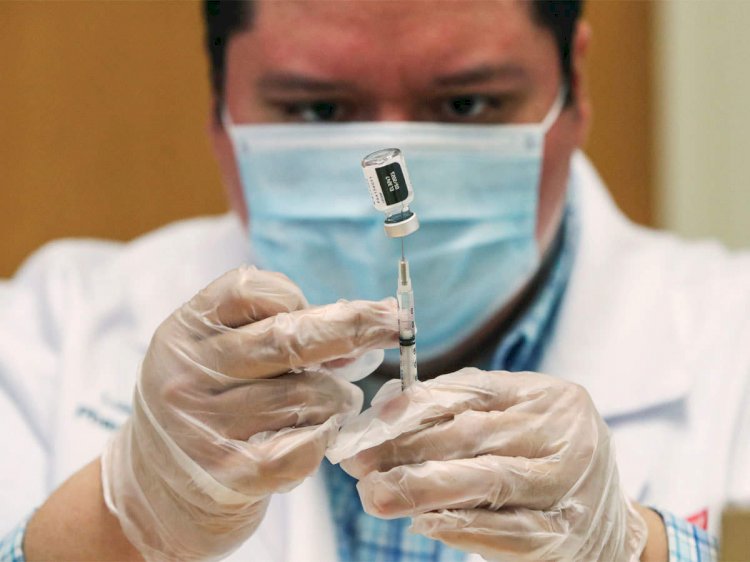Anti-inflammatory Drugs May Cause Weaker Immune Response to Covid-19 Vaccine: Study
For Printing Download Epaper from files section from bottom of this page

New Delhi: Some people who take the drug methotrexate to treat common immune system disorders like rheumatoid arthritis and multiple sclerosis may mount a weaker immune response to a COVID-19 vaccine, according to a study. People with immune-mediated inflammatory disorders are typically treated with drugs that reduce inflammation, including methotrexate. The disorders result when the immune system, meant to fight disease and drive healing, is triggered abnormally, which in turn causes inflammation, pain and swelling. The study, published in the journal Annals of the Rheumatic Diseases, looked specifically at patients’ responses to the Pfizer-BioNTech mRNA COVID-19 vaccine, which the researchers measured by looking at the antibodies produced in each patient by the vaccine.
Vaccine ingredients, once injected into the body, are meant to trigger the production of antibodies, immune proteins that specifically target the viral protein, disabling it and tagging it for removal from the body. However, the researchers at NYU Grossman School of Medicine and NYU Langone Health in the US cautioned that the lower antibody response in patients who take methotrexate does not necessarily mean that these patients are not protected against COVID-19. ”It is most important to state that patients should not be concerned about our study findings as the majority of patients with immune systemdisorders are responding well to the mRNA vaccines,” study co-first author Rebecca Haberman explained. ”It is also possible that methotrexate is delaying, rather than preventing, an adequate immune response against COVID-19,” she added. Researchers have known that rheumatoid arthritis patients who take methotrexate have a reduced response to seasonal flu vaccines. Since mRNA vaccines use a new mechanism of action that patients with these common immune disorders have not seen before, the team wanted to determine how well these patients are protected.
The study enrolled healthy people and patients treated for common immune-mediated disorders, including rheumatoid arthritis, psoriatic arthritis and psoriasis. The participants received two doses of the Pfizer-BioNTech mRNA COVID-19 vaccine. The researchers analysed blood samples to determine the amount of antibodies patients produced after receiving the vaccine. They also measured the activation of key immune system cells, includingCD8 killer T cells, which are generated as part of the body’s immune response.
The study found that over 90 percent of healthy subjects and patients taking drugs other than methotrexate to control inflammation mounted strong antibody responses. Patients with immune-mediated inflammatory disorders who were taking methotrexate achieved an adequate response in only 62 percent of cases.
Similarly, while healthy patients and those with common immune disorders who were taking anti-inflammatory drugs other than methotrexate produced CD8 T cells, patients taking methotrexate did not show an increase in CD8 T cell activation after vaccination. ”More research is needed to understand why such a significant proportion of people with common immune disorders who take methotrexate have deficiencies in mounting an antibody and cellular response,” says study co-senior author Jose U. Scher, an associate professor at NYU Langone.

 Active Times
Active Times 

















